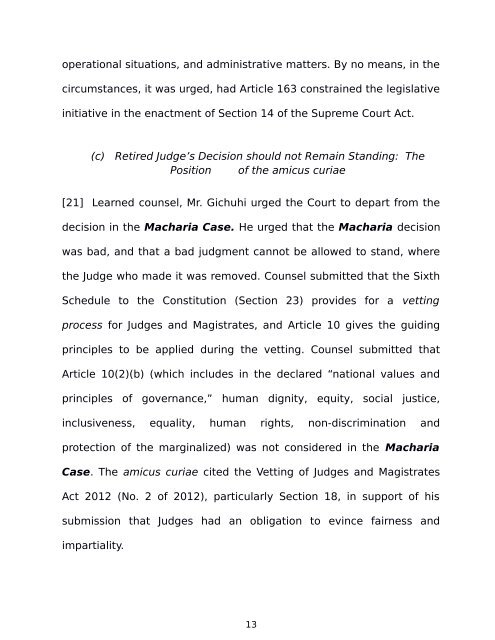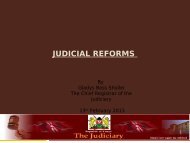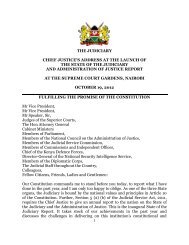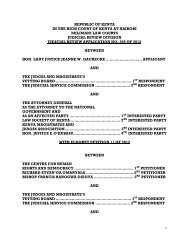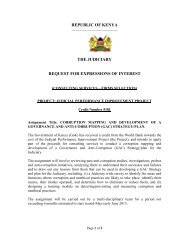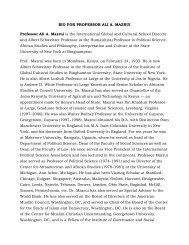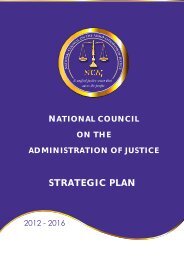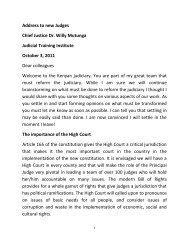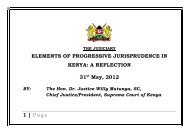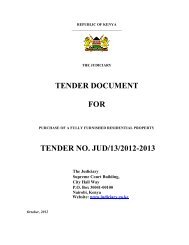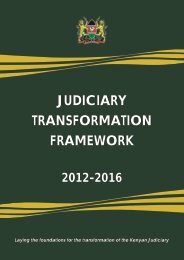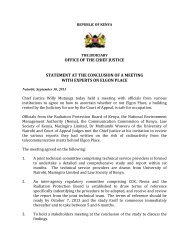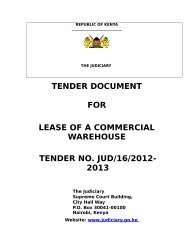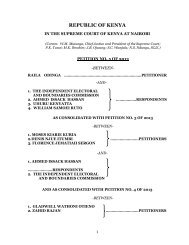REPUBLIC OF KENYA - The Judiciary
REPUBLIC OF KENYA - The Judiciary
REPUBLIC OF KENYA - The Judiciary
You also want an ePaper? Increase the reach of your titles
YUMPU automatically turns print PDFs into web optimized ePapers that Google loves.
operational situations, and administrative matters. By no means, in the<br />
circumstances, it was urged, had Article 163 constrained the legislative<br />
initiative in the enactment of Section 14 of the Supreme Court Act.<br />
(c) Retired Judge’s Decision should not Remain Standing: <strong>The</strong><br />
Position of the amicus curiae<br />
[21] Learned counsel, Mr. Gichuhi urged the Court to depart from the<br />
decision in the Macharia Case. He urged that the Macharia decision<br />
was bad, and that a bad judgment cannot be allowed to stand, where<br />
the Judge who made it was removed. Counsel submitted that the Sixth<br />
Schedule to the Constitution (Section 23) provides for a vetting<br />
process for Judges and Magistrates, and Article 10 gives the guiding<br />
principles to be applied during the vetting. Counsel submitted that<br />
Article 10(2)(b) (which includes in the declared “national values and<br />
principles of governance,” human dignity, equity, social justice,<br />
inclusiveness, equality, human rights, non-discrimination and<br />
protection of the marginalized) was not considered in the Macharia<br />
Case. <strong>The</strong> amicus curiae cited the Vetting of Judges and Magistrates<br />
Act 2012 (No. 2 of 2012), particularly Section 18, in support of his<br />
submission that Judges had an obligation to evince fairness and<br />
impartiality.<br />
13


